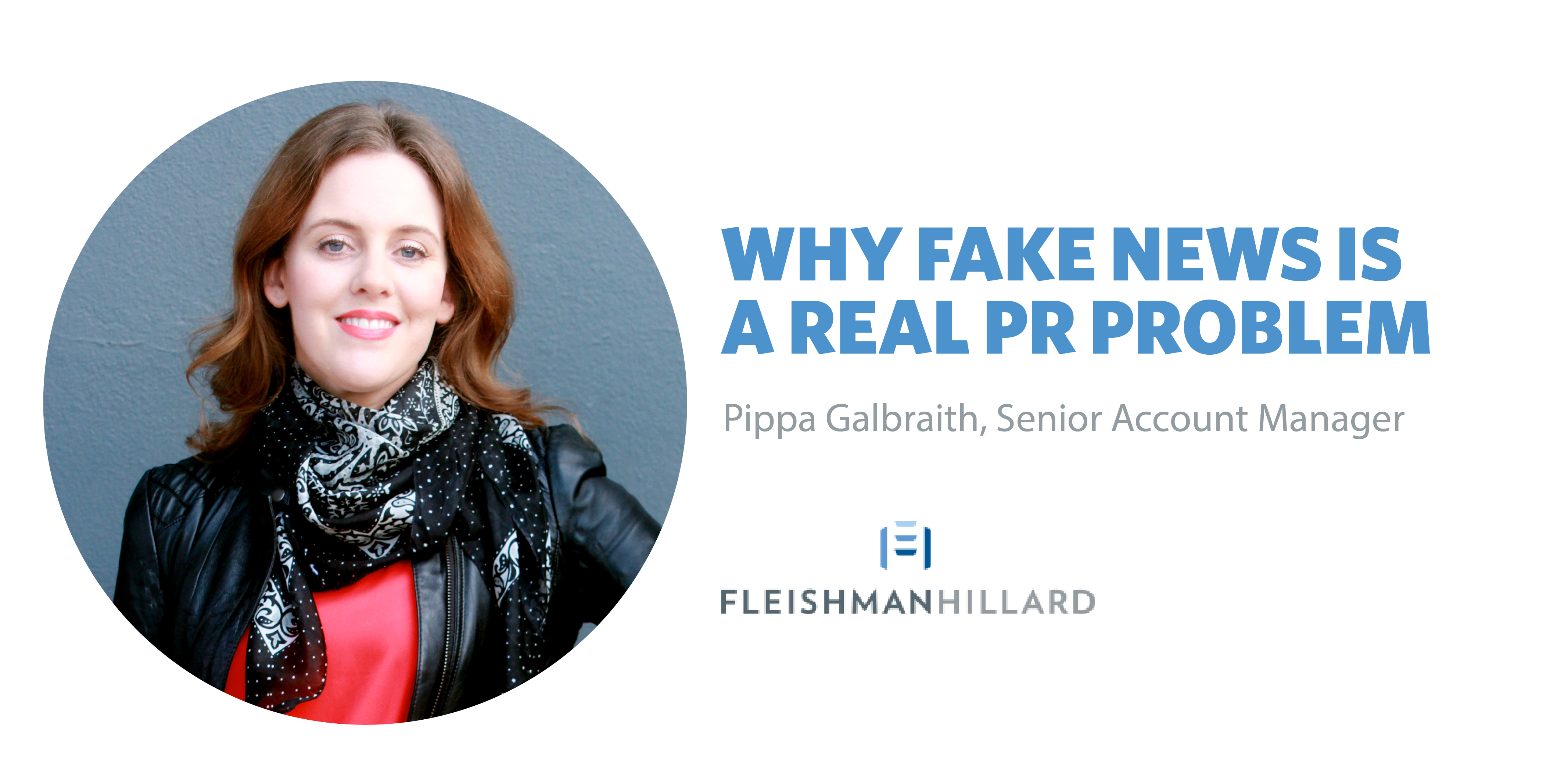Why Fake News is a real PR problem
When the news is the news.
Agenda-driven news is nothing new, but the sudden and not so subversive rise of fake news has me stunned. Black Ops, #PaidTwitter and the US Presidential Election have brought to light a deep and dark area floating somewhere between sinister political spin, cleverly crafted click bait, bad PR, and powerful pay-to-play masters who have the scary ability to twist fact into falsehood. Just last month New Balance nearly had me setting my much-loved sneakers alight, along with my faith in the all- American track brand, over one contextually inaccurate tweet. Yikes.
Now, New Balance is not the first company to fall victim to a random tweet whose framework was cooked up by others looking for shadows where none existed. Pepsi and many other major corporations have recently had to defend themselves over something that never actually happened. Fake news has profound implications for anyone with a PR concern. I have great relationships with my media – they trust me, I trust my client’s brands, they’re authentic, they know to steer clear from any political influence or opinion, you say. Ok great, but fake news does one thing – it kills trust. Rather, it obliterates it.
How fake news affects us as communications consultants
Firstly, there’s a difference between fake news and bad journalism. Deliberately planted alternative facts are not the same as un-researched, error-filled reporting that does a disservice to everyone. All due respect to the shrinking news room, but it has become more common for our PR content to be published verbatim. It’s a bitter sweet result, but it’s also this lax attitude toward critical reporting that has allowed fake news to flourish.
Secondly, fake news will make your job harder. Fake news has the ability to demolish any trust the general public has in the media, and in return it erodes the trust the media have in what they’re being fed by us. Like brand loyalty, our media relationships are built on trust, achingly developed over time, backed by exclusive interviews, stressful scoops and running hand in hand toward ridiculous deadlines. But, when the public actively distrusts the media, they will question and disregards news headlines, they will speculate third-party validations, and your earned media coverage will swiftly evaporate, taking with it your relationships and ROI. Bye bye, bread and butter.
Lastly, like it or not, opinions have become fact. At a recent Research Symposium organised by the Institute of Public Relations in New York, the winner of the Pathfinder Award, Dejan Verčič, reckons that if we don’t want to be left behind, we need adapt to this new reality where opinions, and not facts, move the needle. So, do we as communications consultants have a moral obligation to tell the truth, or to prove it with action? Or do we just listen to our stakeholders, serve the enterprise well, and trade-in the truth for attention?
So how do we adapt to the ‘post-truth’ era of fake news?
So often regarded as the ugly stepchild of the media world, it’s time for communications consultants to take a lead role and stand up to fake news through, facts, truth and integrity. Now more than ever before we need to work with honest and good intention, question everything, think critically, reexamine your proof points, verify all information yourself, be scrupulous about the facts of any story you promote, and hold both clients and journalists accountable when it comes to storytelling and fact-checking. Definitely do NOT be tempted to run with a fake news story if it benefits your client and sees the competition unfairly ripped apart.
Keep talking to your legit media people, be fake news prepared, brainstorm potential scenarios and if embroiled, respond quickly to counter untruths before the public starts burning their shoes and boycotting cereal. Finally, don’t forgo paid media – it gives you full control over your narrative. Work with your media buying agencies to place spend on platforms that align with your client’s values. So use it. Just not on a fake news site.*
*Read up next week on how paid media has the ability to drive fake news, or directly counter it.
Written By: Pippa Galbraith, Senior Account Manager

Find Out More
-
The metaverse – Is it important for your business?
June 2, 2022
-
First Year At A Job And It Had To Be 2020!
June 11, 2021
-
PR trends accelerated by the COVID-19 pandemic
February 19, 2021
